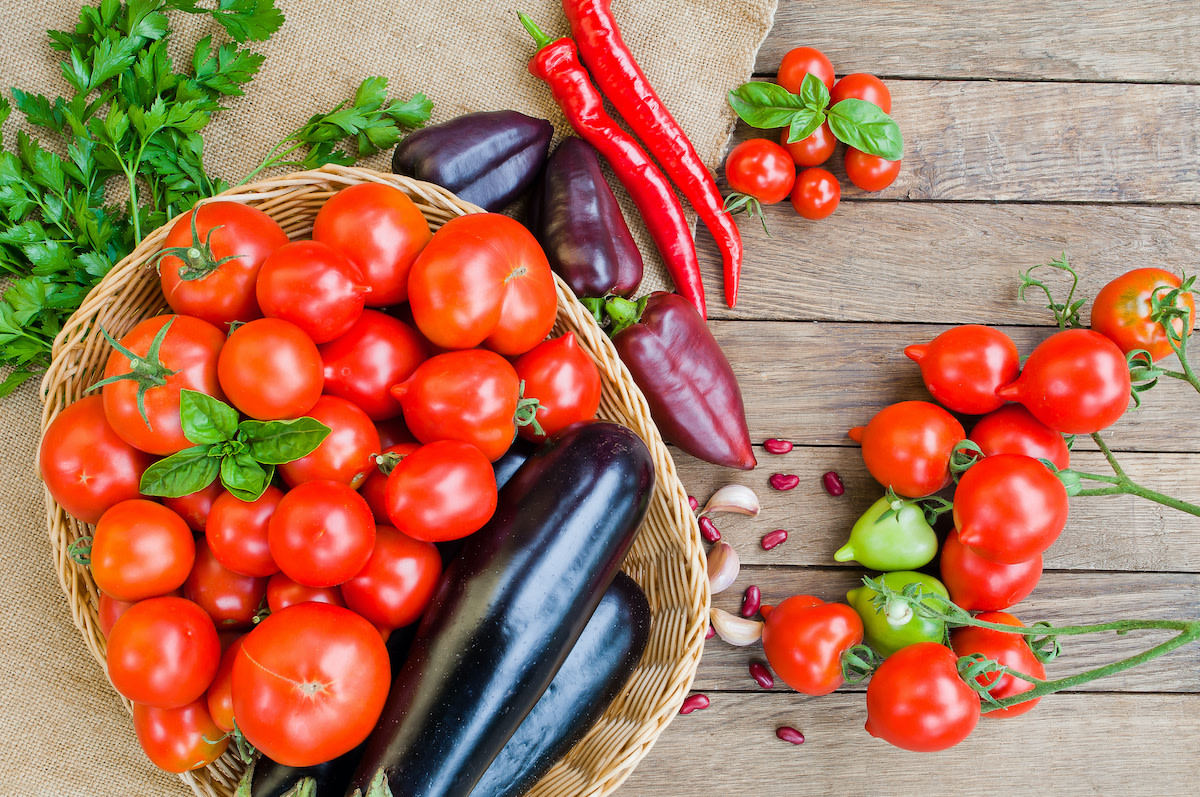Eggplant Companion Planting: 9 Plants to Grow With Eggplant
Written by MasterClass
Last updated: Jun 7, 2021 • 3 min read
With its deep-purple hue, the venerable eggplant is a great plant to grow in your vegetable garden. While the warm-weather vegetable has a long growing season, it’ll be worth the wait once you can make a perfect eggplant parmesan with the fruits of your labor.
Learn From the Best
What Is Eggplant?
Eggplant (solanum melongena), or aubergine, is a perennial, warm-season vegetable from the nightshade family. Eggplants come in a variety of sizes, shapes, and colors. The most common eggplant variety in the US is the globe eggplant—this hefty variety has glossy, deep-purple skin and spongy fruit. Other commonly cultivated varieties include white eggplants (used in Middle Eastern dishes like baba ganoush), Thai eggplants, Black Beauties, Ichiban, Rosa Bianca, and Little Fingers.
What Is Companion Planting?
Companion planting is a time-tested gardening method that enriches and protects vulnerable crops. Farmers and gardeners plant specific crops near each other to deter pests, attract beneficial insects, and stimulate growth.
What Are the Benefits of Companion Planting?
Companion plants will either help a specific crop grow or grow better beside a specific crop and can do many support jobs in the garden:
- Repel insect pests. Cabbage worms, cucumber beetles, Mexican bean beetles, carrot flies, cabbage moths can plague vegetable gardens. For example, planting sage and rosemary near broccoli, cauliflower, and radishes can help protect the herbs from cabbage moths. Many companion plants (like marigold flowers, catnip, and rue) repel specific pests and should be planted near certain crops to keep them pest-free.
- Attract beneficial insects. Pollinators like bees and ladybugs can use a little encouragement to visit vegetable gardens and pollinate the crops. Gardeners often plant attractive plants like borage flowers to encourage pollinators to visit.
- Improve soil nutrients. When crops grow, they take up valuable nutrients from the soil—leaving the gardener to do a lot of work at the end of the season to renew the soil’s nutrients. However, many companion plants (like bush beans and pole beans) add nutrients like nitrogen back into the soil, helping keep other plants healthy and well-fed.
- Encourage faster growth or better taste. Many companion plants (like marjoram, chamomile, and summer savory) release specific chemicals that encourage faster growth or better taste in the plants around them, leading to quicker and better harvests for home gardeners.
- Provide ground cover. Plants that spread low across the ground (like oregano) serve as a blanket over the soil, protecting it from the sun and keeping it cooler for plants that need it.
- Provide necessary shade. Plants that grow tall and leafy (like zucchini and asparagus) can provide welcome shade for sun-sensitive plants beneath them.
- Serve as markers. When growing slow-growing plants, it can be difficult to tell where the rows will be while you’re waiting for the seeds to sprout. Gardeners often use fast-growing plants (like radishes) interspersed with the slow growers in their rows to delineate where the slow growers will be.
9 Plants to Grow With Eggplant
From aromatic herbs to green beans, here are the best companion plants to grow with eggplants:
- 1. Marigolds: Marigolds are one of the most popular companion plants for vegetable gardens. They attract low-maintenance pollinators, and their strong scent deters insects.
- 2. Spinach: Eggplants can provide spinach with shade in the summer, while the green superfood helps retain soil moisture.
- 3. Oregano: Oregano repels aphids, cabbage moths, and spider mites with its powerful aroma, and attracts beneficial insects and pollinators like honey bees and ladybugs.
- 4. Nightshades: Other members of the nightshade family, like tomatoes, peppers, and potatoes, make good companions for eggplants because they share similar growing requirements.
- 5. Broccoli: Eggplants are heavy feeders that require proper nutrients to set and produce fruit. Broccoli imparts nutrients into the soil, helping your eggplants thrive.
- 6. Kohlrabi: Kohlrabi deters insect pests like aphids, flea beetles, and cabbage worms.
- 7. Borage: Borage is a flower that attracts beneficial insects and can deter pest worms from invading your eggplants.
- 8. Pole beans: One of the “Three Sisters,” pole beans are a great plant to grow with eggplants because they provide much-needed nitrogen in the soil.
- 9. Nasturtiums: Nasturtiums are pretty flowers that attract aphids. While this may seem counterintuitive, many gardeners plant nasturtiums a short distance away from their vegetable garden to attract aphids away from their crops.
Learn More
Grow your own food with Ron Finley, the self-described "Gangster Gardener." Get the MasterClass Annual Membership and learn how to cultivate fresh herbs and vegetables, keep your house plants alive, and use compost to make your community - and the world - a better place.
